When Catherine Wreford and Craig Ramsay met in 1997, the Royal Winnipeg Ballet was their church. Ramsay, then 19, heard about another dancer at the school who loved musical theatre as much as he did. He tracked down 16-year-old Wreford, and their friendship was instantaneous. Both had ambitions of performing on Broadway, and both had grown up in the church. But they didn’t connect on the basis of faith at that time. They lived and breathed dance.
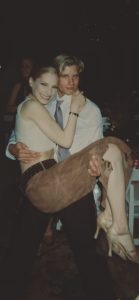
They left ballet school to chase their dreams east: Wreford first to Toronto, then to Ontario’s Stratford Festival, and Ramsay to Charlottetown for Anne of Green Gables — The Musical. In 1999, they ended up together again, sharing a 300-square foot studio apartment in Toronto. Ramsay was rehearsing for Mamma Mia! while Wreford spent her days auditioning.
You may unsubscribe from any of our newsletters at any time.
The following year, Wreford moved to New York City, where she soon scored a Broadway role in 42nd Street. Ramsay, on tour with Mamma Mia!, flew in for her opening night. “I remember telling Craig that it was our opening, not just my opening,” she says. “We had made it [to Broadway] together.”
Wreford encouraged Ramsay to make the move to New York, too. He resisted. He didn’t have work and wouldn’t be able to afford rent. But Wreford told him to come anyway; she’d cover their living expenses until he landed a role. “I never doubted that he would get a show on Broadway,” she says. Sure enough, Ramsay made the move to the Big Apple in 2002 and was cast in Fiddler on the Roof. “I think the biggest thing is that we have faith in each other, and that faith translates into faith in everything else that we do,” says Wreford.
In the following years, that foundation has sustained their friendship through the ups and downs of life, including moves, career changes, breakups, marriages, kids and even a devastating diagnosis in 2013. At age 32, Wreford learned she had terminal brain cancer — and only two to six years to live.
Miraculously, she beat those odds — and keeps beating them. So when the duo decided to audition in 2019 for season eight of The Amazing Race Canada, they weren’t surprised to make the cut. (Somehow, they’re often able to make their dreams happen.) However, they never thought they’d win.
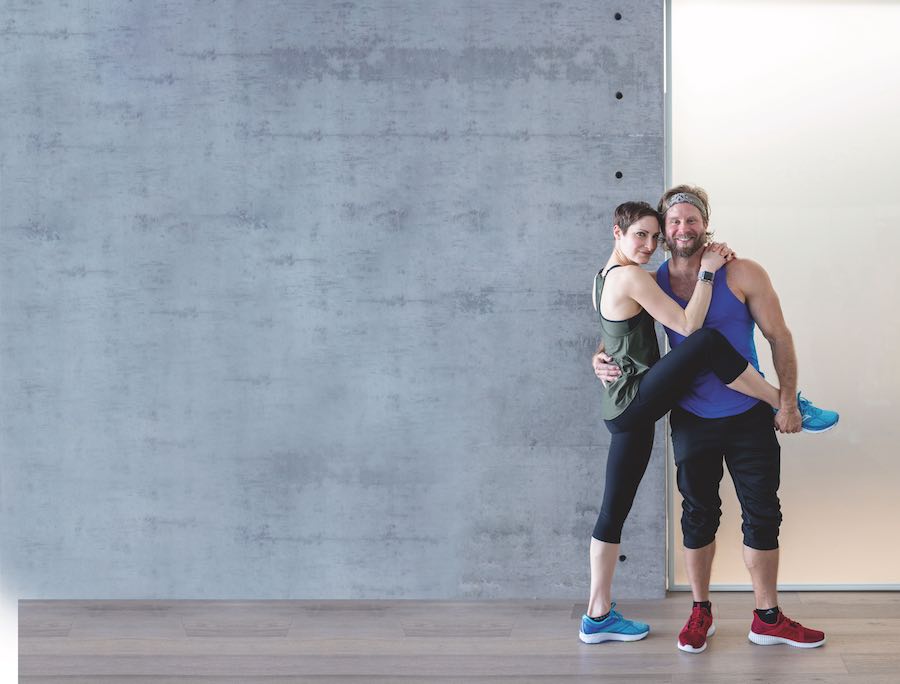
Throughout their 26 years of friendship, Wreford and Ramsay have never given up on each other, even in the most difficult times. Probably the biggest test to their relationship came after Wreford left Broadway. She had injured her Achilles tendon, which made dancing painful. Around this time, she met the actor Jeff Goldblum and moved to Hollywood, leaving dancing behind.
She and Goldblum got engaged — and unengaged. Then, for three years, Wreford ran a mortgage company. It was a hard lifestyle. She drank, smoked, used cocaine and got little sleep. (Since her cancer diagnosis, doctors have told Wreford that they believe her tumour was present for years prior and possibly affected her behaviour.)
After her engagement to Goldblum ended, she was in an abusive relationship, and she and Ramsay had fallen out of touch. Ramsay tried to reconnect with Wreford, flying out to Los Angeles to let her know he was concerned. But Wreford ignored him. “I knew Craig wouldn’t approve of the people I was dating, and I was sort of embarrassed,” she remembers. “I was lost in this world of isolating myself, too.”
In 2009, Ramsay moved to Los Angeles, where he began working as a fitness expert on the Bravo reality TV show Thintervention. When Wreford was finally able to leave her boyfriend that same year, she called Ramsay, who welcomed her back into his life. “I never felt judgment from Craig, ever,” she says. “And I’ve never judged him, either. I think that’s a good way to keep a friendship going.”
That lack of judgment has also helped them support each other when it comes to faith. Both of them grew up in the United Church: Wreford in Winnipeg and Ramsay in the small town of Harrow, Ont. Ramsay attended Harrow United with his parents and Riverside United, 40 minutes away in Windsor, with his grandmother. But when he was realizing he was LGBTQ as a teenager, he took a step back from church.
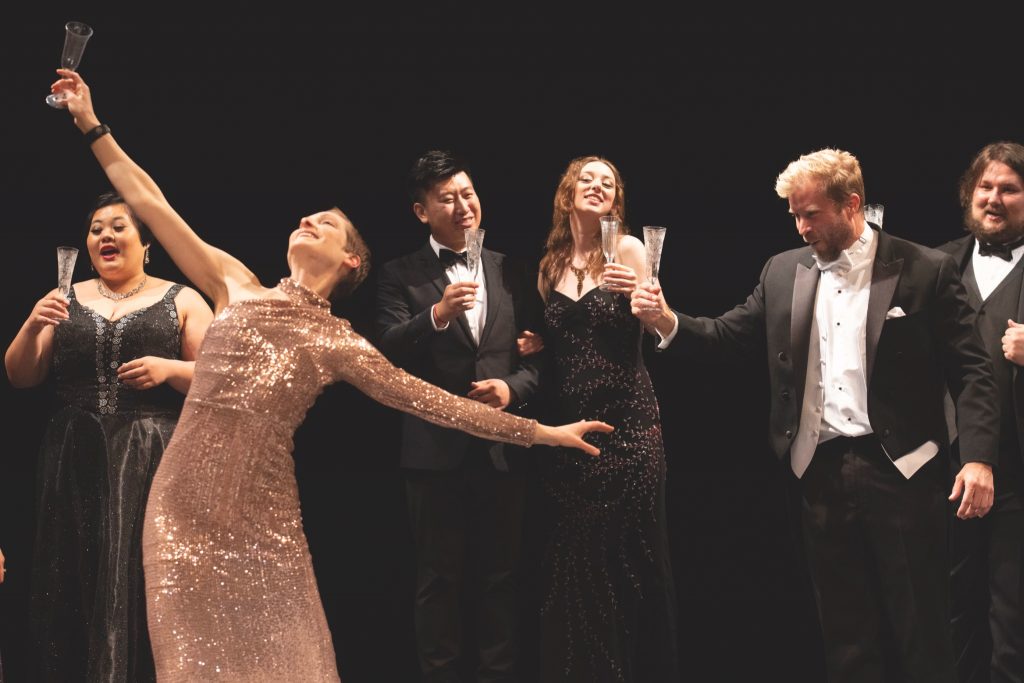
He didn’t have a negative experience with his congregations, but he was aware that many other faith communities were anti-gay and he wanted some space from organized religion. “There’s a lot of hate disguised through Christianity and religions,” says Ramsay. “There were many years that I was incredibly bitter.”
Over a decade into their friendship, Ramsay remembers venting to Wreford about religious people and their judgment. She reminded him that not all people of faith were like that. She was still living in Los Angeles, regularly praying and calling her mom after church back home in Winnipeg to hear about the sermon. Their conversation made Ramsay start to reconsider his views. “Catherine definitely, over the years, was a voice of support for me to stay connected with my faith and my church,” he says.
Their faith was truly tested in June 2013. For Wreford’s birthday that year, Ramsay flew out to see her. Married with two young children, she was living in Oklahoma then. The pair were working out when Wreford began struggling with the exercises and had to sit down. Immediately, Ramsay knew something was wrong; never before had Wreford complained about a workout.
That weekend, she went to the hospital, where a CT scan showed a large mass on her brain. Within weeks, Wreford had brain surgery. After studying the cells they’d removed, doctors told her she had incurable anaplastic astrocytoma — brain cancer — and she wouldn’t live longer than six years. “I was mad because I don’t want to die; I don’t want to leave my kids. I was kind of mad at everything for a little bit,” she says.
She was also mad at God. Ramsay, meanwhile, was in shock. He couldn’t believe someone like Wreford, a vibrant mother of a two-year-old son and baby daughter, could be handed this card. They had so many questions: Was this punishment for something? How could this happen?
More on Broadview:
- How my pregnancy loss strengthened my stance on reproductive rights
- Henri Nouwen’s friendship with a trapeze troupe deeply impacted his writing — and his spirit
- My good friend Gordon Lightfoot was also a friend to so many
Getting through their anger was a process. Wreford focused on her kids, Elliot and Quinn. She also prayed, asking God to support her family through her illness. Ramsay’s grandmother, Phyllis Ramsay, helped him grapple with his feelings about his best friend’s diagnosis, praying and sharing scripture with him. “My faith helps me believe and trust Catherine is going to have more longevity than my mind thinks,” he says. “My faith helps me overcome my fear.”
Wreford and Ramsay aren’t alone in finding solace in their faith. In the book Why God Won’t Go Away, researchers Dr. Andrew Newberg and Dr. Eugene D’Aquili describe how the religious impulse is rooted in the brain’s biology: “By lifting us out of fear and futility, and giving us the sense that wise and capable hands are steering the cosmic bus, religion has served as a powerful source of confidence and motivation that has not only shaped much of human history, but may also have been a crucial reason the human race has managed to survive.”
Danielle Tumminio Hansen takes this one step further, believing traumatic events can strengthen faith. In an online article for The Conversation, the assistant professor of practical theology and spiritual care at Emory University’s Candler School of Theology in Georgia writes: “Faith-based beliefs and practices can help individuals make sense of their life’s story. In other words, trauma challenges so many assumptions about who we are, what our purpose is and how to make sense of a traumatic event. Faith-based beliefs and practices offer meaningful resources to help navigate those questions.”
For Wreford, her diagnosis and her faith have led her to live intentionally and to the fullest. By 2014, she and her family had moved back to Winnipeg so she could be close to her parents. There, she finished her chemotherapy treatment and began singing in the choir at St. Andrew’s River Heights United, her childhood church. That same year, in Palm Springs, Calif., Ramsay married his husband, celebrity hair stylist Brandon Liberati. Wreford attended the wedding as his best woman.
Wreford surpassed her six-year “expiration date,” as she puts it, in 2019, the same year Ramsay approached her about auditioning for The Amazing Race Canada. They’d performed together for the first time onstage that winter at the Royal Winnipeg Ballet, playing Lord and Lady Capulet in Romeo and Juliet. During the show’s run, Ramsay noticed improvements in Wreford’s brain function — a larger vocabulary, better short-term memory, an ability to form sentences more quickly — and he thought The Amazing Race would help that continue. He also knew she wanted to do some wild, adventurous things, like jumping out of a plane.
With both of them leading busy lives in different countries, he saw it as an opportunity to have quality, uninterrupted time together, too. Contestants on the show spend the weeks of filming without cellphones, internet access and any communication with the outside world. It would be a chance for them to talk about the future and what she’d like for her kids once she was no longer here. Wreford immediately said yes.
They were one of 10 teams accepted that year, and when the show finally began filming in 2022, delayed due to the pandemic, the best friends went into it with the goal of spreading Wreford’s story. They wanted to show that you can still be strong and capable with a terminal diagnosis.
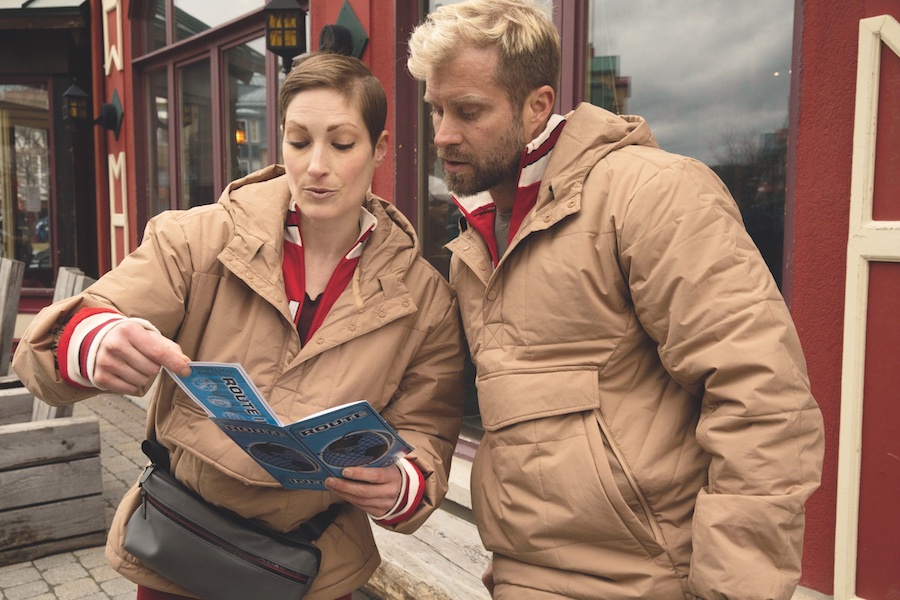
Their approach to the race mirrored the one they take to life. “When things are out of our control, we need our faith to make sense of it, because if we didn’t, I think that it would mentally really get to us,” Ramsay says. “The surrendering to our faith allows us to live our life to the fullest. It certainly did on the race as well — took the pressure off.”
Competing together also strengthened their bond. In the show’s first episode, they got lost in Montreal and thought they’d be eliminated. They were trying to find the Rialto Theatre, with Ramsay driving as Wreford navigated from the back seat. She was thrown off by French signs and one-way streets, and it just didn’t register for her that they were looking for a theatre. Off-camera, Wreford had a breakdown, blaming herself and her brain. She apologized to Ramsay, saying they’d lost because of her. (They went on to finish that episode in fifth place.) Ramsay reminded her that they were a team, which meant that he was to blame, too. “He had to help me realize that even if we had lost, it wouldn’t have been the end of the world,” she says with a smile.
As other teams were eliminated episode by episode, Wreford and Ramsay continued on, making their way across the country. They were the first team to complete the penultimate challenge, a series of riddles, and raced to the finish line at Vancouver’s BC Place, where they embraced in disbelief. Their prize: $250,000, two pickup trucks and a trip around the world, which they plan to use instead to revisit the Canadian stops on their Amazing Race journey. “I knew in that moment…that I can use this to raise awareness to get a cure for brain cancer,” Wreford says. “That was all I was thinking when we won — and how awesome was it to share this experience with Craig?”
Ten years after her diagnosis, Wreford’s health is stable. Every three months or so, she has an MRI so doctors can monitor the tumour, which thankfully hasn’t grown. Her oncologist has told her that her active lifestyle and doing what she’s passionate about – singing and dancing – are likely what’s keeping her alive.
Since the race, she and Ramsay have begun offering motivational presentations for schools, churches and other organizations. They’ve put some of their winnings toward a new scholarship at the Royal Winnipeg Ballet — where their faith in each other all began. Wreford also danced in the company’s performance of Swan Lake, volunteers with the Brain Tumour Foundation of Canada and is a patient representative for the Canadian Cancer Trials Group, a national research group that conducts clinical trials. “I want to do so much,” says Wreford, who recently separated from her husband. “But I also want to just be with my kids and be with friends and family, my chosen family.”
Ramsay, meanwhile, splits his time between his hometown, where he’s building a house next door to his parents, and Palm Springs, where he and his husband co-parent their nephew, the child of Liberati’s sister and her wife, who live three doors down.
Wreford’s cancer has taught them both to live in the moment and to trust and hope for the best possible outcomes in life. “I never say, ‘It’s not fair,’ because I’ve learned that life is not fair,” says Wreford. “But I still have faith in knowing that we are all taken care of and that we are going to be okay — no matter if I die or if I don’t die, that it will be okay. I just have to believe that.”
Wreford and Ramsay believe that God is love, and that showing love to others is a demonstration of their faith. During The Amazing Race Canada, that took the form of connecting with and helping fellow racers in challenges. Other teams on the show expressed how inspired they were to live their life three months at a time, just like Wreford. Her experience served as a reminder to appreciate what’s around you — from the big, extravagant things right down to life’s little daily joys. “It’s a wakeup call for people,” says Ramsay. “Don’t waste it.”
***
Rhiannon Russell is a freelance writer in Whitehorse.
This story first appeared in Broadview’s July/August 2023 issue with the title “Test of Faith.”

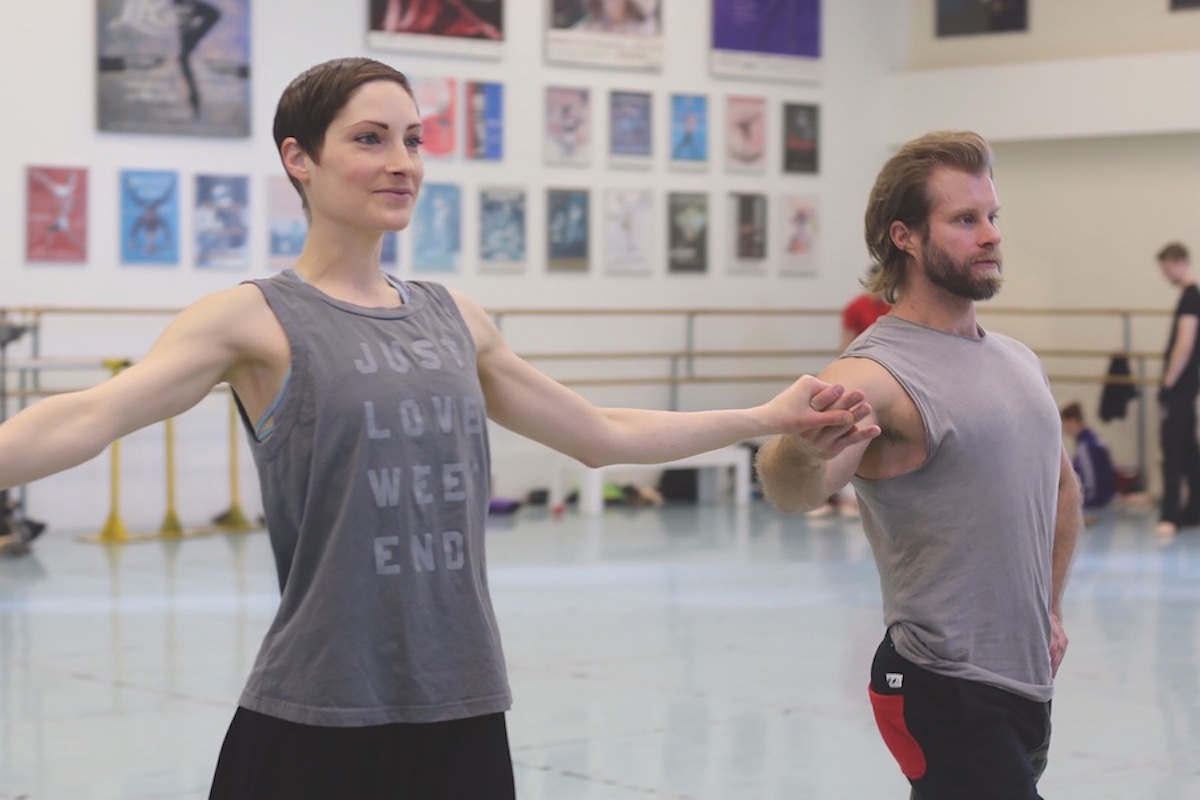







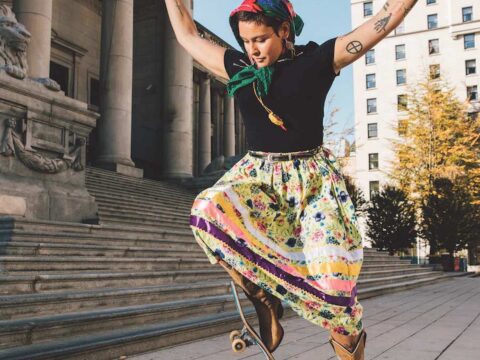
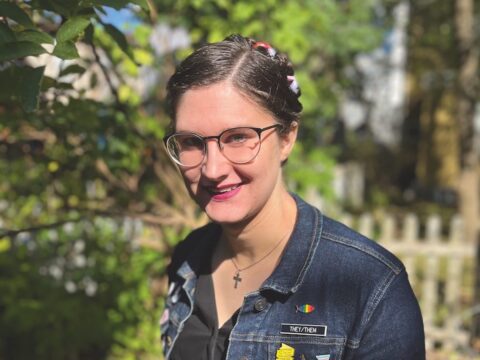
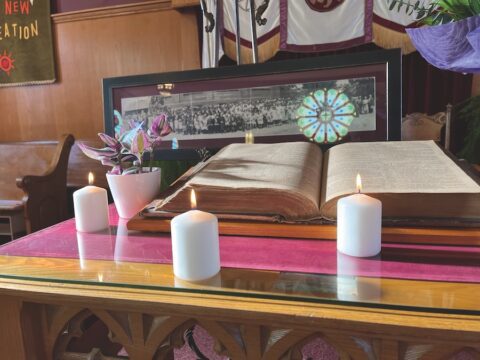


Just met her shopping. .beautiful lady.